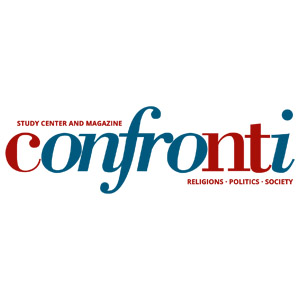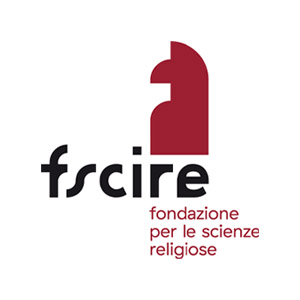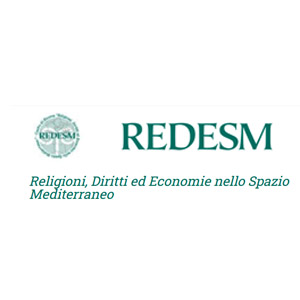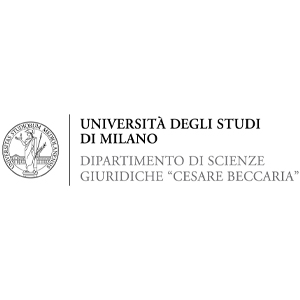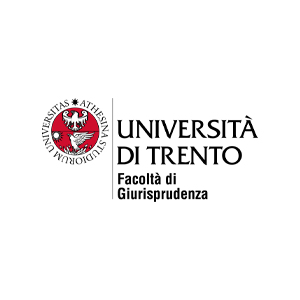Key findings
Key findings – ReMinEm
General
1. The main difference between DeGIP countries and E&L is the almost complete disappearance in the former of religion-based personal laws that exist in the latter.
2. Provided they comply with international human rights standards, religion-based personal laws in force in E&L can promote the rights of religious minorities. However, if access to personal laws is limited to a small number of RMs, unjustified disparities may be generated, particularly to the detriment of unrecognized RMs.
3. In E&L it is impossible to perform some fundamental acts of a person's life in a form independent of religious rules. As a result, members of unrecognized RMs are forced to perform them according to the rules of a religion that is not their own.
4. Legal systems that regulate these fundamental acts through uniform laws that are independent from citizens’ religious affiliation can better promote RM identity if recognize the right to perform such acts in a way that corresponds to the rules of their religion when these rules do not contradict fundamental principles of the state's legal system.
5. In countries that provide for different legal regulation of recognized and unrecognized RMs, members of the latter do not always enjoy the individual rights of freedom of conscience and religion that must be granted to each person regardless of religious affiliation.
Marriage and family
6. Civil marriage is regulated by the law of DeGIP countries but is not provided for in the legal systems of E&L, contrary to the existing international standards in this field.
7. In the DeGIP countries, RM members can celebrate a marriage according to the rules of their religion that is valid under state law, if some conditions are met. In E&L, this right is denied to members of unrecognized RMs.
8. In the DeGIP countries the dissolution and annulment of marriages celebrated by RM members can only be decreed by a state authority. In Lebanon, the dissolution or annulment of marriages celebrated by members of a recognized RM can only be pronounced by the respective religious authority.
9. In the DeGIP countries, inheritance, child custody, and adoption are governed by state rules that are independent of the religious affiliation of the involved parties. In E&L inheritance, custody, and (with some specificities) adoption rules are different according to the religion of the parties.
10. In the DeGIP countries, differences in religion between spouses are irrelevant to the celebration of a marriage that is valid for the state; in E&L a marriage between individuals of different religions may be celebrated only if it is permitted by the norms of the respective religion.
Public and Faith-based Private Schools
11. In all ReMinEm countries RE is part of the instruction provided by public schools and is given through a system of teaching of religions (teaching of one or more specific religions); the system of teaching about religions is only (and partially) followed in Denmark.
12. In many ReMinEm countries some minority religions cannot be taught and, where the teaching is possible, it is subject to important restrictions that do not apply to majority religions.
13. In no ReMinEm country the teaching of a particular religion can be imposed on students who do not wish to receive it except in Egypt where, contrary to international standards, students are not entitled to opt out from RE.
14. In the ReMinEm countries RM symbols cannot be officially displayed in public schools, with few and limited exceptions.
15. The right to open and manage faith-based private schools is granted to all RMs in the DeGIP countries, only to the recognized ones in Egypt and Lebanon.
Key findings – MiReDiaDe
General
1. Unlike some countries considered in the ReMinEm project, no MiReDiaDe country regulates family law through religion-based systems of personal law, but the constitution of the Republic of Cyprus still bears traces of the Ottoman heritage, characterized by the institution of the millet, and in Algeria civil law is deeply influenced by the Islamic legal tradition. The latter situation is especially problematic, as it causes the subjection of RM members to the rules of a religion other than their own.
2. Legal systems that regulate social relationships through uniform laws that are independent from citizens’ religious affiliation can better promote RM identity if they recognize the right to perform the corresponding acts in a way that respects RMs’ religious rules, when these do not contradict fundamental principles of the state’s legal system.
3. Among the MiReDiaDe countries, only Türkiye does not provide for any form of legal personality to RMs, which in any case do not ask for a special recognition as RMs but only demand to legally exist and operate as ROs. Without such a recognition, even the most basic collective manifestations of religious freedom are impaired.
4. In countries that provide for different legal regulations of recognized and unrecognized RMs, members of the latter do not always enjoy the individual right to FoRB that must be granted to each person regardless of religious affiliation.
Marriage and family
5. Unlike some ReMinEm countries, all MiReDiaDe countries recognize civil marriage.
6. Only in Croatia and in the Republic of Cyprus, RM members can celebrate a marriage according to the rules of their religion that is valid under state law, if some conditions are met. However, this right is not recognized to all RMs.
7. In all MireDiaDe countries , only a state authority can decree the dissolution and annulment of marriages celebrated by RM members.
8. In all MiReDiaDe countries, inheritance, child custody, and adoption are governed by state rules, but Algerian civil law is heavily influenced by Islamic norms. Consequently, members of RMs can find themselves subject to rules of a religion other than their own.
9. In Croatia, France, the Republic of Cyprus and Türkiye, differences in religion between spouses are irrelevant for the celebration of a marriage that is valid for the state. In Algeria, a non-Muslim man is not allowed to marry a Muslim woman; a non-Muslim woman may marry a Muslim man provided that she belongs to one of the ‘Peoples of the Book’, that is, Judaism and Christianity.
Public and Faith-based Private Schools
10. In Algeria, the French region of Alsace-Moselle, Croatia, the Republic of Cyprus and Türkiye, RE is part of the instruction provided by public schools and is given through a system of teaching of one or more specific religions (‘teaching of religions’). The system of ‘teaching about religions’ is only followed in the rest of France, where it is taught as a transversal subject.
11. The possibility for RMs to teach their own religion in public schools is limited: none can do so in Algeria and Türkiye, and only a small number of them have this opportunity in the French region of Alsace-Moselle, Croatia and the Republic of Cyprus.
12. In Algeria and Türkiye, students belonging to a minority religion are not exempted from the attendance of the teaching of the majority religion, which constitutes a breach of the international standards of FoRB protection.
13. The right to open and manage faith-based private schools is granted to all RMs in France, only to the recognized ones in Croatia, the Republic of Cyprus and Türkiye, to none in Algeria.


 MENU
MENU
